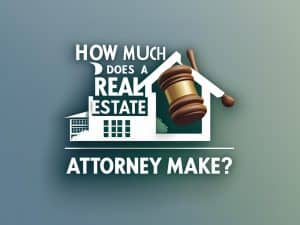When it comes to hiring a business lawyer, there are several types of costs that you may encounter. The most common types of business lawyer costs include hourly rates, flat fees, retainer fees, payment plans, and additional expenses or disbursements. Each of these cost structures has its own advantages and disadvantages, and understanding the differences among them helps a client choose the right approach before hiring a business lawyer.
Attorney‑client fee agreements are governed by state professional‑conduct rules requiring reasonable fees and clear communication of the basis or rate, often in writing (see, e.g., ABA Model Rule 1.5; Cal. Bus. & Prof. Code § 6148; N.Y. 22 NYCRR § 1215.1). This article serves as a roadmap: identify the matter type, choose an appropriate fee structure, and align the engagement letter with ethics rules and your budget.
If you are asking “how much does a business lawyer cost,” the answer depends on structure, scope, and jurisdiction. Hourly rates are one of the most common ways that business lawyers charge for their services. With this type of cost structure, the client is billed for the actual time the lawyer spends on the matter.
Hourly rates can vary widely depending on the lawyer’s experience, location, and the complexity of the matter. On the other hand, flat fees are a set amount that is charged for a specific service, regardless of the time it takes to complete.
This can provide more predictability in terms of costs, but it may not be suitable for matters that are particularly complex or time‑consuming. Regardless of structure, fees must be reasonable under factors such as time, novelty, and results (ABA Model Rule 1.5(a); see Hensley v. Eckerhart, 461 U.S. 424, 433 (1983)).
Key Takeaways
The following checklist can assist before an engagement letter is signed.
- If you are asking “how much does a business lawyer cost,” the answer depends on fee structure, scope, market, and ethics rules.
- Business lawyer costs can vary based on the type of legal services required, such as contract drafting, litigation, or regulatory compliance.
- Hourly rates are based on the amount of time the lawyer spends on the matter, while flat fees are a set amount for specific services.
- Retainer fees are upfront payments for ongoing legal services, and payment plans may be available for clients with budget constraints.
- Additional expenses and disbursements, such as court filing fees and travel costs, may be billed separately from legal fees.
- Factors affecting business lawyer costs include the lawyer’s experience, the complexity of the matter, and the geographic location of the law firm.
- Clients can negotiate fees with a business lawyer by discussing the scope of work, alternative fee arrangements, and potential cost-saving measures.
- Investing in a business lawyer can provide value by protecting the business from legal risks, providing strategic advice, and ensuring compliance with laws and regulations.
Hourly Rates vs Flat Fees
Readers who wonder “how much does a business lawyer cost” should note that hourly rates and flat fees are the two dominant models, each with advantages and disadvantages. Hourly rates provide a level of transparency as the client is billed for the actual time spent on the matter.
However, this can also lead to uncertainty about the final cost, especially if the matter becomes more complicated than initially anticipated. On the other hand, flat fees offer predictability in terms of costs, because the fee is known in advance for a specific service. This can be particularly beneficial for routine legal matters where the scope of work is well‑defined.
Regardless of the approach, the fee must be reasonable under the governing rules, and a court that later reviews a fee application will apply reasonableness/lodestar factors (see ABA Model Rule 1.5(a); Hensley, 461 U.S. at 433).
Ultimately, the decision between hourly rates and flat fees will depend on the client’s needs and circumstances. Decision framework: hourly suits uncertain scope or duration; flat suits well‑defined deliverables; in either case, best practice is to include a written budget, any not‑to‑exceed cap, and a phase plan.

Retainer Fees and Payment Plans
In addition to hourly rates and flat fees, some business lawyers may require retainer fees or offer payment plans. A retainer fee is an upfront payment used to secure the lawyer’s services; advance fee deposits are client funds that must be held in trust until earned, unless a jurisdiction allows an earned‑upon‑receipt engagement retainer with informed consent, and the lawyer bills against the deposit as work is performed (ABA Model Rule 1.15; state IOLTA rules).
Clarify whether the retainer is a security deposit held in trust or a true engagement retainer that is earned upon receipt where permitted. These terms directly affect how much does a business lawyer cost. Payment plans, on the other hand, allow clients to pay for legal services in installments rather than in a lump sum.
This can make legal services more accessible to clients who may not have the financial means to pay for services upfront. Any interest or finance charge must comply with state usury law and professional‑responsibility requirements. Retainer fees and payment plans can be beneficial for clients who may not have the immediate financial means to pay for legal services in full.
Carefully review the terms of any retainer agreement or payment plan to confirm the payment schedule and any associated fees or interest. Additionally, consider whether a retainer fee or payment plan is necessary based on the nature of the matter and the client’s financial situation, and ensure the agreement reflects required disclosures where applicable (e.g., non‑contingent fee contracts under Cal. Bus. & Prof. Code § 6148; contingent fee contracts under § 6147).
It is advisable to request written trust‑account statements at reasonable intervals and to include a replenishment trigger (for example, when the balance falls below a set amount). These safeguards help manage how much does a business lawyer cost. If a payment plan is used, the interest rate, schedule, and default remedies should be confirmed in writing.
Additional Expenses and Disbursements
In addition to legal fees, there may be additional expenses or disbursements associated with hiring a business lawyer, and these can influence how much does a business lawyer cost. These expenses can include court filing fees, expert witness fees, travel expenses, and other costs that are incurred as part of the matter.
Discuss these potential expenses with counsel at the outset to clarify which costs the client may be responsible for. Lawyers may advance court costs and litigation expenses, and repayment may be contingent on the outcome where permitted (ABA Model Rule 1.8(e), subject to jurisdictional variations).
This can affect how much does a business lawyer cost in litigation. Additional expenses and disbursements can vary widely depending on the nature of the matter and the specific services required. For example, if the matter requires expert witnesses or extensive travel, these expenses can add up quickly.
These outlays contribute to how much does a business lawyer cost overall. Address these costs early with counsel to budget effectively and avoid surprises. Ensure the engagement letter specifies how additional expenses will be handled. Include a cost‑control clause requiring prior approval for any single expense above a stated amount and a monthly cost report. Cost controls help manage how much does a business lawyer cost.
Factors Affecting Business Lawyer Costs
There are several factors that can affect business lawyer costs, including the lawyer’s experience and expertise, the complexity of the matter, the location of the lawyer, and the specific services required. Lawyers with more experience and expertise may command higher hourly rates or flat fees, while lawyers in larger cities or more competitive markets may also charge higher rates.
Additionally, matters that are particularly complex or time‑consuming may require more billable hours, leading to higher overall costs. In some matters, a statute or contract may permit the prevailing party to recover reasonable attorney’s fees, subject to court review (e.g., Cal. Civ. Code § 1717; see also Fed. R. Civ. P. 54(d)(2)). Fee shifting can materially change how much does a business lawyer cost to each side.
When drafting or reviewing contracts, evaluate whether to include, cap, or omit fee‑shifting clauses, as they can materially affect bargaining leverage. The specific services required can also affect overall legal fees and influence how much does a business lawyer cost.
For example, litigation or dispute resolution may require more time and resources than routine legal matters such as contract drafting or review. Discuss these factors with counsel at the outset to clarify how they may affect costs. Also consider whether alternative fee arrangements better fit the matter and budget.
Negotiating Fees with a Business Lawyer
When hiring a business lawyer, legal fees are often negotiable. Many lawyers are willing to discuss their fee structures and may be open to alternative fee arrangements based on the client’s needs and circumstances. For example, some lawyers may be willing to offer a discounted hourly rate or a flat fee for certain services.
Some lawyers also offer payment plans or other arrangements to improve affordability. Professional‑conduct rules require that the scope of representation and the basis or rate of the fee be communicated, preferably in writing, and that contingent‑fee agreements be in a signed writing with mandated disclosures (ABA Model Rule 1.5(b)–(c); see also N.Y. 22 NYCRR § 1215.1; Cal. Bus. & Prof. Code § 6147).
During fee negotiations, transparency about budget and financial constraints is helpful. This helps counsel understand the needs and work toward a mutually beneficial arrangement. The engagement letter should be reviewed carefully to confirm the terms and conditions of the arrangement. In sum, open communication and transparency are key when negotiating fees with a business lawyer.
Clear communication can reduce how much does a business lawyer cost. For predictable projects, consider flat or capped fees; for variable matters, consider blended rates or phase‑based caps. Those choices shape how much does a business lawyer cost. Request a scope table with deliverables, timelines, staffing levels, and any not‑to‑exceed amounts.

Understanding the Value of Investing in a Business Lawyer
When evaluating how much does a business lawyer cost, it is essential to weigh the value of investing in legal services for the business. A skilled business lawyer can provide valuable guidance and support in navigating complex legal issues, protecting business interests, and minimizing potential risks. Whether a company is being formed, negotiating contracts, or facing a legal dispute, knowledgeable counsel can provide peace of mind and support informed decisions.
In addition to providing legal expertise, a business lawyer can also help a business save time and money in the long run by preventing costly legal disputes or mistakes. Investing in legal services upfront can help avoid potential pitfalls and help set the business up for success. Ultimately, while business lawyer costs should be carefully considered, view them as a long‑term investment in the business.
In conclusion, there are several types of business lawyer costs to consider when hiring a business lawyer, including hourly rates, flat fees, retainer fees, payment plans, and additional expenses or disbursements. Each of these cost structures has its own advantages and disadvantages, and it is important to carefully consider which may be most suitable for the business’s needs and circumstances.
Factors such as the lawyer’s experience and expertise, the complexity of the matter, and the specific services required can all impact business lawyer costs. However, it is important to remember that legal fees are often negotiable, and many lawyers are willing to discuss their fee structures or offer alternative fee arrangements based on the client’s needs.
Overall, while legal fees should be carefully considered, it is important to understand the value of investing in legal services for the business and to view them as an investment in the future success of the enterprise. In practice, early legal advice can prevent disputes that cost multiples of the initial fee; a short consult can surface low‑cost risk controls.
When considering how much does a business lawyer cost, rates vary widely by market, experience, and matter type. Professional‑conduct rules require that fees be reasonable in light of factors such as time, labor, and complexity (ABA Model Rule 1.5(a)). Contracts sometimes include prevailing‑party attorney‑fee clauses that may shift costs if a dispute arises, subject to the governing state law (e.g., Cal. Civ. Code § 1717).
FAQs
How much does a business lawyer cost?
The answer to “how much does a business lawyer cost” varies by fee structure (hourly, flat, contingency where permitted), scope, market, and complexity. Ask for a written estimate, rate tiers, and any not‑to‑exceed caps so the total is predictable.
What factors can affect the cost of hiring a business lawyer?
Factors that can affect the cost of hiring a business lawyer include the lawyer’s experience and expertise, the complexity of the legal issue, the location of the lawyer, and the billing structure (hourly rate, flat fee, retainer, etc.).
What is the typical hourly rate for a business lawyer?
The typical hourly rate varies by market, practice area, and experience. Clients can request quotes from several firms and obtain a written estimate with rate tiers (partner/associate/paralegal) and any not‑to‑exceed or phase cap. Professional‑conduct rules require fees to be reasonable in light of time, labor, and complexity (ABA Model Rule 1.5(a)).
What are some common billing structures for business lawyers?
Common billing structures for business lawyers include hourly rates, flat fees for specific services, contingency fees (where permitted and documented in a signed writing), and retainer fees (advance deposits for ongoing legal services). Contingency fees are prohibited in criminal cases and in certain domestic‑relations matters (for example, fees contingent upon securing a divorce, alimony, support, or custody) (ABA Model Rule 1.5(d)).
Are there any additional costs associated with hiring a business lawyer?
In addition to the lawyer’s fees, there may be additional costs such as court filing fees, expert witness fees, travel expenses, and other miscellaneous expenses related to the legal matter.
How can I find a business lawyer that fits my budget?
To find a business lawyer that fits a budget, clients can research and compare rates, inquire about billing structures, and request an engagement letter that states the scope and basis or rate of the fee (see N.Y. 22 NYCRR § 1215.1, subject to exceptions). Many states also provide fee‑arbitration programs for fee disputes (e.g., Cal. Bus. & Prof. Code § 6200 et seq.).
This overview provides general information and is not legal advice; consult the professional‑conduct rules and statutes in your jurisdiction for specific requirements.


















































